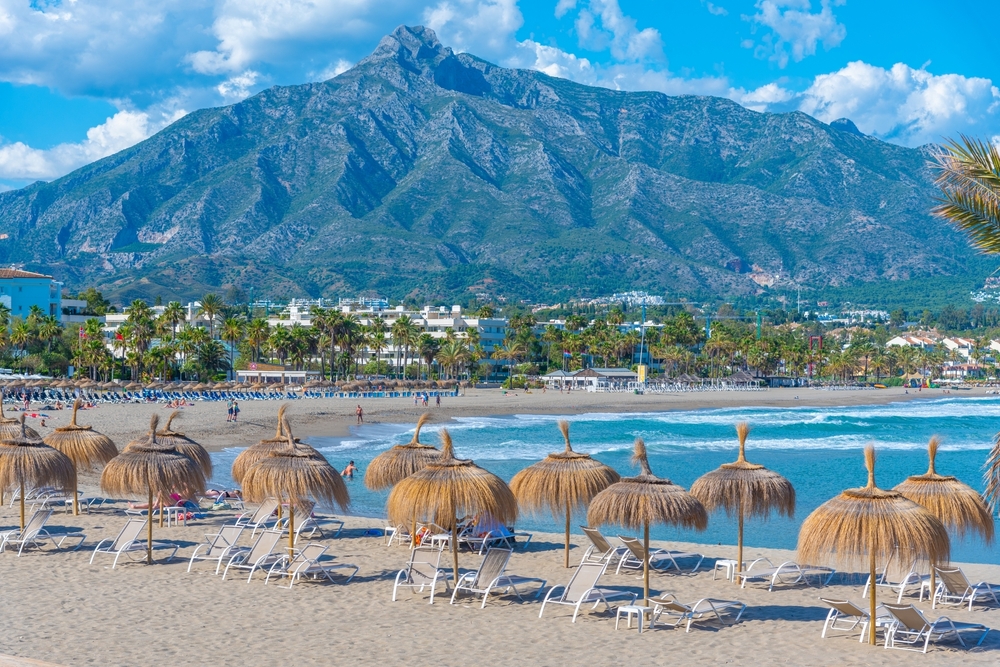Marbella has earned its reputation as one of Europe’s most desirable addresses. The mix of climate, lifestyle, international community and investment security attracts buyers from all over the world. From glamorous seafront apartments on the Golden Mile to secluded villas in the hills of Benahavís, the city offers a range of opportunities few destinations can match.
For those considering a purchase here, the process is straightforward but there are important details to understand. Read on for the answers to the questions we are most often asked by clients when they begin their search in Marbella.
Can foreign buyers purchase property easily?
Yes. There are no restrictions on foreigners owning property in Spain. The only requirement is to obtain a NIE (foreigner tax identification number), which is needed for all financial and legal transactions. It is highly advisable to work with a bilingual lawyer or solicitor in Marbella who can manage the paperwork, contracts and due diligence on your behalf.
What additional costs should I expect?
Buyers should budget for an additional 10 to 13% on top of the purchase price. For resale properties, the main cost is the property transfer tax (ITP), usually around 7%. For new-builds, VAT at 10% and stamp duty at 1.5% apply instead. On top of these, allow roughly 1% each for notary, registry and legal fees.
How long does the buying process take, and do I need to be in Spain?
On average, the process takes six to ten weeks, depending on mortgage approvals, legal checks and the complexity of the property’s documentation. You do not need to be present in Spain to complete the purchase. With a power of attorney, your lawyer can sign contracts and finalise the transaction for you, while virtual viewings and digital communication make the process manageable from abroad.
What legal checks are required?
Your lawyer will verify that the property has clear title, free from charges, debts or liens. They will ensure all licences and planning permissions are in place and that any past extensions or modifications were legally approved. Compliance with anti-money laundering requirements is also part of the process. These checks are essential to ensure your purchase is secure.
How do I choose a reliable real estate agent?
When selecting an agent, ask how long they have worked in Marbella and which areas they specialise in. Reliable professionals should be able to provide references, explain how they manage negotiations, as well as show whether they have access to off-market listings. The most effective agents go beyond sales, coordinating legal advice, mortgages and post-purchase support.
Which neighbourhoods are best?
This depends on your lifestyle and family requirements. The Golden Mile and Sierra Blanca are known for prestige and exclusivity. Puerto Banús suits those drawn to a marina lifestyle, while Nueva Andalucía is particularly attractive to families and golf enthusiasts. San Pedro Alcántara, with its authentic yet cosmopolitan character, appeals to buyers who want a more relaxed pace.
What lifestyle factors should I consider?
Think about proximity to international schools, healthcare, golf, beaches or nightlife, depending on your priorities. Marbella offers a wide spectrum, from lively beachfront apartments to secluded hillside retreats. Knowing what kind of lifestyle you want to enjoy will guide your choice of location.
What ongoing and hidden costs are there?
Owning a property in Marbella comes with recurring expenses. These include annual IBI property tax, community fees for developments, rubbish collection tax, utilities, insurance and general maintenance. For larger villas, staffing and gardening costs can be significant. Non-residents may also be subject to wealth tax, depending on the value of their assets in Spain.
Is Marbella property a good investment?
Marbella remains one of the most desirable luxury markets in Europe, with consistent international demand. Prime areas hold value exceptionally well, and rental yields in sought-after zones are strong due to year-round tourism. La Zagaleta, in neighbouring Benahavís, is now among Spain’s most expensive residential areas, with average villa prices around €12m, underlining the strength of the high-end market.
What common mistakes should I avoid?
The biggest errors are failing to account for the full costs, neglecting legal checks and choosing inexperienced advisers. Renovation projects carry additional risks if planning permissions and building regulations are not properly verified. Taking shortcuts at this stage can result in significant and unexpected expenses.
Buying a property in Marbella is straightforward with the right guidance. Understanding the legal framework, the costs involved and the nuances of each neighbourhood ensures you can move with confidence. For tailored advice and access to the city’s most distinctive homes, contact Luxury Living Marbella to arrange a private consultation.
